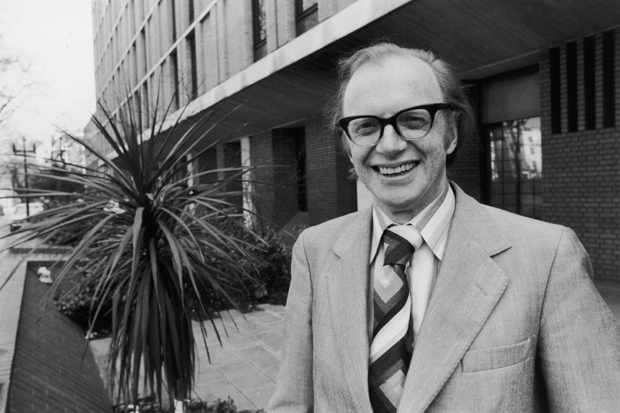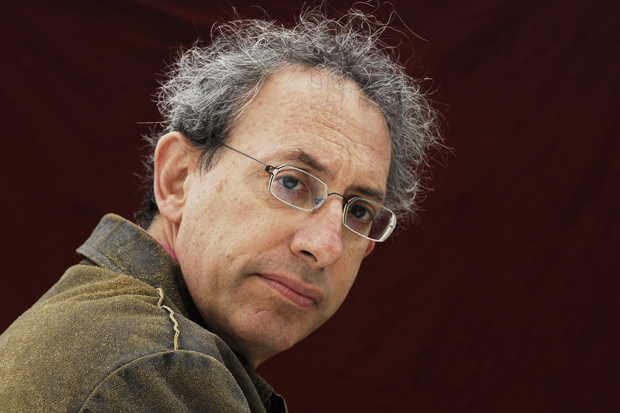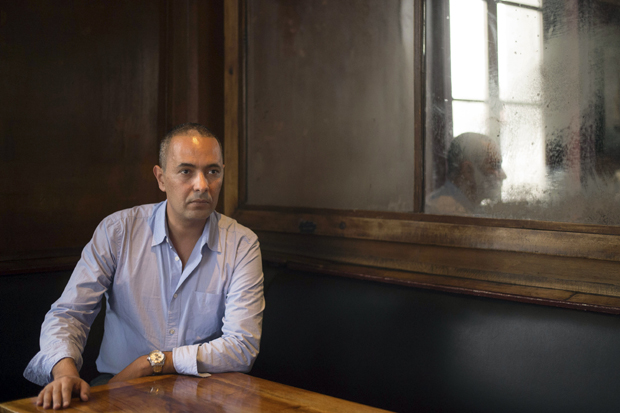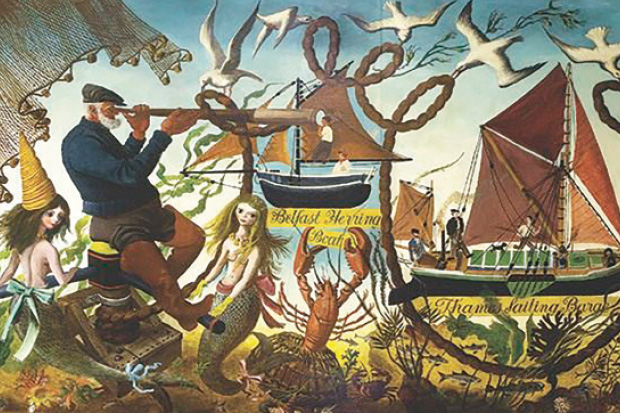‘Genuine invective is an almost lost art in our wild satirical age,’ Dennis Potter complained in New Society in 1966. Now, as the British Film Institute celebrates the life and work of ‘the writer who redefined TV drama’, Oberon Books, with perfect timing, offers this collection of Potter’s critical abuse in journalism and interviews at its most constructively eloquent.
The Art of Invective essentially complements Humphrey Carpenter’s magisterial biography and all those DVDs of the plays that can still galvanise what Potter called ‘the palace of varieties in the corner of the room’. He believed that television, with its vast, all-inclusive audience, was a potentially powerful means of promulgating true democracy.
Potter’s stingingly vitriolic invective was motivated mainly by his resentment of puritanical repression, social inequity and the unfairness, as he experienced it, of physical suffering. He was born in 1935 in the Forest of Dean, a rural coal-mining enclave on the western fringe of Gloucestershire. The son of a miner, and the grandson of a miner whose silicosis caused him to spit gobs of phlegm on the family kitchen stove, Dennis was only ten when he first experienced sex at its traumatic unloveliest. During a stay of several months in an overcrowded house in Hammersmith, he was forced to share a bed with a predatory homosexual uncle, who, on returning from the pub, submitted him to fellation.
Dennis was enabled by a high IQ to rise above poverty and the oppressive authority of National Service to gain intellectual achievement as an Oxford undergraduate. While at New College, he edited Isis and Clarion, chaired the university Labour Club, and struggled uncomfortably against the apparently ineradicable class system. He had friends, but antagonistic contemporaries said then and later that he always deliberately contrived controversy for the sake of widespread notoriety.
Potter campaigned and failed as the Labour candidate in a Conservative constituency. Being already married to a girl with a background like his own, he felt obliged to get a job as a reporter on the resolutely socialist but doomed Daily Herald, which was resurrected as the Sun. When he was 26, he was stricken by psoriatic arthropathy, a disease of the skin and the joints, which resulted, in his case, in terrible facial disfigurement, physical immobility and agony, until relieved, but not cured, by hospital care and strong drugs.
Fortunately, his was a good marriage. Margaret and their children, Jane, Sarah and Robert, lovingly sustained him during many separations, including five long periods of hospitalisation, which only he was able to regard positively as monastic retreats. Like the protagonist of The Singing Detective, the TV drama series generally considered to be his masterpiece, he was able to put together memories, fantasies, feverish hallucinations and calm meditation to achieve a synthesis he thought of as sovereign individuality. His uppermost literary model was Hazlitt, whose forthright honesty and clarity he greatly admired; however, it was probably the torturous itch of psoriasis that sharpened the acerbic edge of Potter’s prose.
Because of the intermittent overt signs of his disease, Potter had to give up journalism in the field, and could make a living only as a reclusive reviewer of books and television, and, later, much more lucratively, as a TV playwright and screenwriter. He never kept secret his contempt for most other critics, especially when they disapproved of his plays. ‘In those days,’ he told Derek Hart in an interview on BBC1, ‘the cripples, the has-beens, the deadbeats and those due for retirement were allowed to be television critics. I became, therefore, a television critic.’
The merciless pungency of his critical judgments soon won him promotion to the pages of New Society, the New Statesman and the Sunday Times, all amply represented in this new compendium of his uninhibited insults. He criticised most popular TV programmes as ‘low-minded drivel’, described David Frost’s interview with Nixon as ‘a hilarious encounter between a crook and a creep,’ without specifying which was which, and even jeered at the BBC, his most important TV patron, as a ‘delicately elephantine,’ ‘stodgily inflexible’ ‘ramshackle anachronism’.
Beyond the hard-boiled, sarcastic wit of his invective, Potter was nostalgic for the imaginary Eden of his native forest, and recognised the validity of Noël Coward’s line in Private Lives, ‘Extraordinary how potent cheap music is.’ Potter’s most effective original contribution to dramatic non-naturalism was having some of his principal characters in Pennies from Heaven lip-synch to recordings of sentimental popular songs of the 1930s, thus making ironic comments on genuine romantic aspirations.
Potter yearned for religious belief, but was unable to accept the God worshipped in churches. He managed to find his own version of godliness in aesthetic bliss. He really was surprisingly shy and would be embarrassed if he were able to see that the only entries under his name in the Oxford Dictionary of Quotations come from Melvyn Bragg’s memorable Channel 4 interview with him. Potter, drinking morphine to ease the pain of pancreatic cancer, spoke of the psychedelic intensity of his contemplation of the white blossoms of a tree below his window. ‘The nowness of everything,’ he said, ‘is absolutely wondrous.’
Margaret died of cancer on 28 May 1994; Dennis, at the age of 59, died of cancer only ten days later — a Potteresque sort of happy ending: togetherness in dying.
Got something to add? Join the discussion and comment below.
Get 10 issues for just $10
Subscribe to The Spectator Australia today for the next 10 magazine issues, plus full online access, for just $10.
Available from the Spectator Bookshop, £21.99 Tel: 08430 600033
You might disagree with half of it, but you’ll enjoy reading all of it. Try your first month for free, then just $2 a week for the remainder of your first year.














Comments
Don't miss out
Join the conversation with other Spectator Australia readers. Subscribe to leave a comment.
SUBSCRIBEAlready a subscriber? Log in